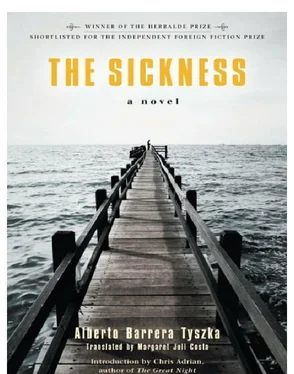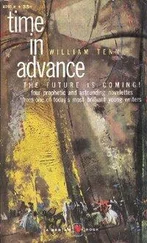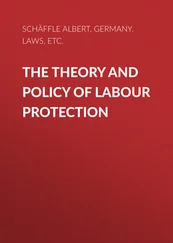The day before Dr. Miranda comes back to work, the usual morning letter turns suddenly into a real emergency:
Dear Andrés,
I’ve been up all night vomiting and with a high fever. The nausea won’t go away and my blood pressure’s very high. I can’t even get out of bed.
My phone number is 551-4978. As soon as you read this, please call me.
Your friend,
Ernesto
The journey back seems longer. It’s almost as if the afternoon light were stopping the ferry from traveling any faster. The mood among the passengers is different too. They’re all going home, the sand is slowly trickling from their memories; everyone on deck seems filled by a slight sense of disillusionment. Andrés, moreover, feels frustrated and disappointed with himself. He has lied to Mariana on the phone; he didn’t have the courage to tell her that he hadn’t been able to do what he’d intended to do on this trip. That lie makes him feel even more vulnerable. It’s a multiplication of his own stupidity. That very morning, in Pampatar, on his father’s insistence, he had again behaved absurdly. He had to find a way to complete the lie that had been the whole justification for the trip. Ever since they arrived, his father had kept reminding him that they had come to the island to see a house that someone was supposedly offering him as part-payment of a debt. It had been a rather tangled and ambiguous story, never fleshed out with too many details, but on the island, where it had to become fact, the story proved almost too fragile to survive.
“Aren’t we going to see that house, then?” his father asked, somewhat puzzled, over their breakfast of fresh fruit.
“Yes, of course, that’s what we’re going to do this morning.”
By the side of the road, on the way to Pampatar, Andrés spotted a condominium under construction. He didn’t know what else to do. He braked rather sharply, hurriedly explained to his father that this was the housing complex they had come to see, but then insisted that he stay in the car.
“Wait for me here,” he said, before striding off toward the building site.
He spoke to an engineer and with some workmen who, in rather desultory fashion, were putting the finishing touches to the roof of one of the houses. He asked ridiculous questions and waved his arms about, so that his father, from a distance, would assume that he was talking business, asking about practical details to do with the architecture of the houses, that he was finally dealing with the real reason for their trip. He managed somehow to stretch this out for fifteen minutes. The engineer began to think Andrés must be mad, either that or an idiot determined to waste his time. Then, most absurd of all, as he took his leave, Andrés embraced him. The engineer then thought that he was not only an idiot, but queer too. Andrés went back to the car to tell his father a new pack of lies. His father didn’t like the houses.
“I don’t think it’s a good deal,” he said.
Andrés remembers the scene and feels faintly amused, but somehow pathetic too. It’s all part of the same overarching emotion. Perhaps it simply angers him to see himself being so weak, so incapable of dealing with the situation. He’s done it so often, with so many people, even cruelly, without a scrap of pity, feeling that he was doing the right thing, that frankness should, ethically speaking, be part of the medical armory. Now, however, he finds himself caught up in a whole circus of infinite procrastinations. His father comes over to him, carrying two coffees. One with milk, one black.
“Are you alright?” he asks.
The lights of La Guaira are getting ever closer. Andrés looks at him and knows he has no choice now.
“What’s wrong?” asks his father, realizing from his son’s anxious face that something is up.
Andrés puts his hands together and clears his throat. The words feel almost like heartburn inside him. He can feel the vowels scraping against his esophagus, the consonants rushing toward the roof of his mouth. It’s inevitable. He can do nothing to stop it now. That’s how it is sometimes. You always end up speaking when you hadn’t intended to, when you weren’t expecting to, when there are no more “better moments.” Sometimes the words just say themselves, speak for themselves.
“You’ve got cancer, Dad,” Andrés blurts out, albeit quietly.
There are some things that can only be said quietly.
He wishes it were all much hazier, he wishes his memory of that afternoon were not so very clear, that it had receded a little, that, with the passing of time, it, too, had gradually faded and sunk into the whole pointless compendium of the past. But no, that afternoon is still there, sharp, wounding, rough; ever since then, behind every afternoon, there is always that other afternoon, so much more solid and so resistant to being forgotten. Andrés has done everything possible to make it disappear, but it’s no use. It’s a stain that nothing can wash out, that never goes. For two whole weeks, Andrés has kept seeing himself in that afternoon, every afternoon, always that same afternoon, one afternoon inside another, repeating over and over:
“You’ve got cancer, Dad.”
His father was completely taken aback. Andrés couldn’t meet his gaze and turned away, ashamed. In the background was the port of La Guaira, intermittently illuminated. They stood for a few seconds in silence, then his father said:
“Look at me.”
Andrés wouldn’t, but his father insisted:
“Look at me.”
He didn’t need to raise his voice. His tone was strong and authoritative.
“Look at me, damn it!”
When Andrés did finally turn to face him, he saw a shaken, tearful man. It would be hard to say exactly what emotion was troubling him most just then: surprise? fear? indignation? rage? His chin was trembling. His father’s face suddenly turned incredibly pale, like a sudden white blush. Andrés could almost hear the teeth crunching inside that tight, tremulous jaw. His father dropped his coffee cup, and when it hit the floor, the plastic cracked and the hot liquid splattered Andrés’s shoes.
“How long have you known?”
Andrés again felt like a child hauled up in front of his father, he thought again that the whole trip had been a terrible, stupid mistake. His father spoke to him again as his father. For a moment, they ceased being two adults, who were occasionally friends and occasionally not, who shared a common history; for a moment, they returned to that age when they really could only be father and son, nothing more.
“Does that matter?”
“It does to me.”
Andrés shifted uneasily on his feet, made an attempt at a gesture, opened his mouth to speak, then said nothing.
“You knew right from the start, didn’t you? From the first tests.”
Andrés could find no sounds to make. He felt as if words had suddenly deserted him.
“I asked you not to lie to me, Andrés. That was all I asked of you.”
“I didn’t lie to you,” Andrés said in a whisper.
“No, of course not. You just concealed the truth from me!”
“If you’ll let me explain. .”
“So that was what this trip was all about.” His father spoke with bitter sarcasm, then, with scorn. “To give me the big news!”
Then he turned abruptly and went over to a rail almost at the front of the boat. Andrés hesitated for a moment. He sensed that his father was crying or trying very hard not to. He waited a few minutes before joining him. He imagined that would be best, that his father needed time to quell his anger, his rage. Then, very slowly, he walked over to him, trying to be as discreet as possible. His father did not turn round, but kept his back to him. The port was getting nearer.
Читать дальше












